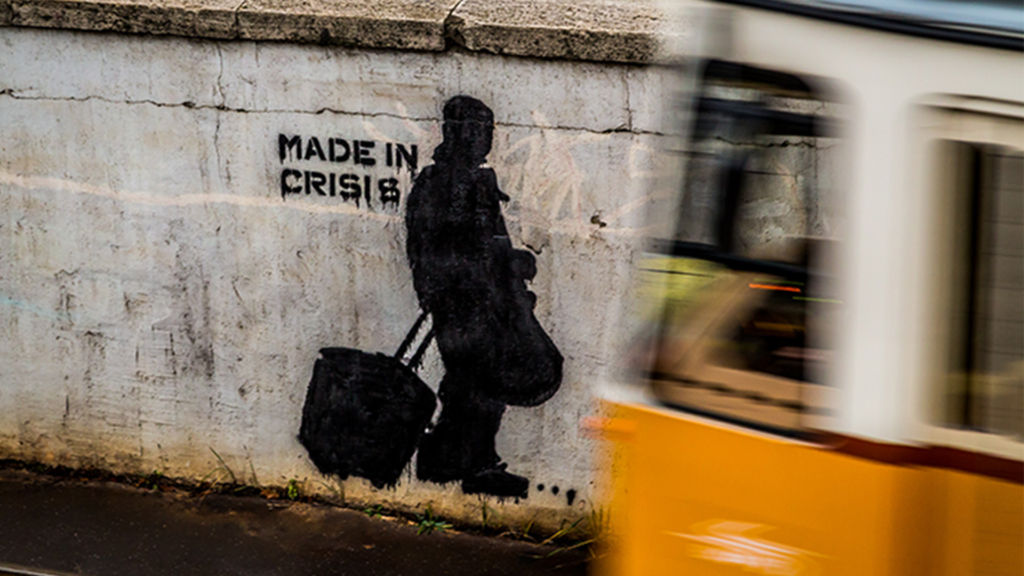This is the subtitle of the book “Antiquity” by Nassim Nicholas Taleb, author of the bestselling “Black Swan,” in which the author continues his earlier thesis that long-term strategies no longer work and that the current world is dominated by the unknown, the random and the changeable. It’s hard to disagree in the era of COVID-19. And yet, according to the author, it is possible to survive in this uncertainty, unpredictability and even chaos can be tamed, and even win from it!
Anti-brittleness
To do so, it is necessary, the author says, to assume in advance that the current world is governed by non-predictability. It is impossible to calculate the risk of important, rare events – Black Swans. In contrast, it is much easier to assess whether something is fragile and build Anti-Fragility. This word, created for the author’s use, is meant to describe something more than resilience or endurance. “Resilience allows you to survive the shock without change; anti-fragility changes for the better.” Things, systems, professions that are anti-fragile are served by shocks. Under the influence of variability, randomness, disorder and stress, they develop and flourish. “Adventure, risk and uncertainty are in their element.” Taleb believes that antifragility is a feature of all natural and complex systems that have managed to survive.

Crisis generator
Meanwhile, the modern world, economy, education, politics are doing everything to remove variability, randomness and stressors. In this way, they deprive systems of their antifragility and lead to crises. These systems are either weakening or dying. Taleb believes that the greatest producer of fragility in society is a system in which one does not risk one’s own skin. This, according to him, is the acquisition of anti-fragility at the expense of others. He compares this with the past, when people of high social status or position took risks and suffered the negative consequences of their actions, and those who did so for the good of others were heroes. Today, according to the author, a new class of anti-heroes has been born: bureaucrats, bankers, professors who enjoy too much power and have no responsibility. They exploit the system, and the price is borne by the citizens. “Never before in history have so many non-risk-takers, that is, people not personally exposed to danger, exercised so much control.” It’s hard to disagree, remembering the 2008 crisis and the lack of consequences for those who contributed to it.
Triad
Taleb divides all objects into 3 categories: fragile, resilient and anti-fragile. “The fragile need tranquility, the anti-fragile thrive on chaos, and the resilient are not much impressed by either.” With endurance not being the golden mean here, for as the author argues after Nietzsche, “One can die from being immortal.” Artisans are more anti-fragile than small businesses, but a rock star is even more anti-fragile. If we have some debt, credit, it will always locate us on the fragile side, because we become less flexible, more dependent on the system, more if anything we have to agree to.

Simplicity
Since perfect resilience is unattainable, we need, according to Nassim Taleb, a mechanism by which the system will constantly regenerate itself, taking advantage of random events, unpredictable shocks, stressors and instability. This is helped by simplicity(keep it simple stupid ;)), as complications lead to “multiplicative chains of unexpected consequences.” The lack of transparency means that interventions have unpredictable effects, followed by another intervention and another, each worse than the last. However, according to the author, in the modern world, this simplicity can harm the interests of people who care about complications, which is why it is so difficult to implement.
Redundancy
Antifragility is enhanced by redundancy. This is an important feature of natural systems that helps manage risk. People have two kidneys each and overcapacity of many organs and systems (e.g., lungs, nervous system). Meanwhile, systems developed by humans are becoming more and more economical. One could say that they are stripped to the bone of all redundancy, making them vulnerable to any injury. We don’t like redundancy in organizations because it gives the impression of waste. Taleb, on the other hand, believes that redundancy is more than insurance, it is an investment.

Natural selection in the economy
Everyone who sets up his or her business hopes to succeed. Few people think about the fact that in order for the entire economy to be anti-fragile and evolve, each company must be exposed to failure – fragile (and not, for example, supported by the state, despite its inefficiency). Organisms must die so that new ones can take their place, so that the system can strengthen itself and not produce elements that are weaker than others. This is what makes the devices we use work better and better. There is a certain relentlessness in this, which, however, the author must admit, seems to be driving the development.
You will find these and many other more and less controversial theses in “Antiquity“, which puzzled me, at times provoked me, inspired me and turned my various assumptions on their head. It also gave me a lot to think about the human condition and nature. How much are we anti-fragile by nature, and how much are we “fragile” as Sting sings?
If you want to know more contact us.